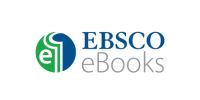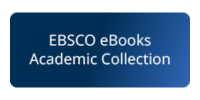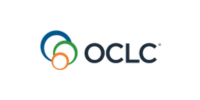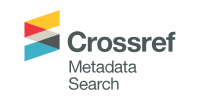Call for Chapters | Contemporary Women’s Issues Reflected in Indian Regional Literature
The book is part of the Scholarly Collection Series and seeks to explore how cultural, social, economic, and political issues affecting women are reflected and represented across various Indian languages and regions.
EDITOR
Dr. Munish Kumar Thakur , Assistant Professor, Department of English, IEC University, Baddi, (HP) India
Quality unpublished works as chapters are invited to the book. The chapters should strictly be according to the coverage scope of the book.
SCOPE & OBJECTIVES OF THE BOOK
The edited volume aims to explore the portrayal of contemporary women’s issues as depicted in Indian regional literature. The focus of the volume is to explore how cultural, social, economic, and political issues affecting women are reflected and represented across various Indian languages and regions. This book seeks to bridge the gap between literary studies and gender discourse, emphasizing how literature acts as a mirror to societal transformations and the challenges women face today. The volume will cover diverse genres, including fiction, poetry, drama, and autobiographies, while also addressing regional variations in themes and representations.
The thematic objectives of this edited volume are as follows:
- To Analyze Representation: Study the depiction of women’s struggles, aspirations, and resilience as portrayed in Indian regional literature.
- To Highlight Diversity: Showcase the varied cultural, social, and linguistic dimensions that influence the portrayal of women’s issues across different regions of India.
- To Promote Gender Discourse: Offer critical insights into the evolving narratives surrounding women in literature and their connection to broader gender discourses.
- To Facilitate Comparative Study: Compare and contrast themes, characters, and social contexts between various regional literatures to understand commonalities and differences.
- To Encourage Multidisciplinary Perspectives: Bring together scholars from literature, sociology, history, and gender studies to promote an interdisciplinary understanding of contemporary women’s issues.
Sub-Themes and Topics for the Chapter Contributions
- Women and Identity in Regional Literature-The quest for identity—Women protagonists in Indian regional fiction; Intersectionality—Gender, caste, class, and religion in literature; The portrayal of urban versus rural women in regional narratives.
- Depictions of Gender-Based Violence-Literature addressing domestic violence and abuse; Sexual violence and its representation in poetry and fiction; Narratives of resistance and survival in the face of violence.
- Marriage, Family, and Gender Roles-Depictions of arranged marriages, dowry, and societal expectations; The changing dynamics of family structures in contemporary fiction; Motherhood and its complexities in regional literature.
- Women in the Public Sphere-Women’s participation in politics and social movements as depicted in literature; The portrayal of working women and professional struggles; Narratives on education and empowerment.
- Marginalized Voices-Tribal and Dalit women’s experiences in regional literature; The representation of LGBTQ+ women in Indian regional writing; Stories of women from minority communities and their unique struggles.
- Folklore, Myths, and Women-Retelling of myths and folktales from a feminist perspective; The use of folklore to critique patriarchy in regional languages; The reinterpretation of traditional narratives to empower women.
- Women and Mental Health-Literary portrayals of women’s mental health struggles; The stigma around mental illness as depicted in regional writing; Narratives of healing and resilience.
- Women in Conflict Zones-Depictions of women’s lives in regions affected by political and social unrest; The role of women in peace-building efforts as portrayed in literature; Literature addressing displacement, migration, and refugee experiences.
- Ecofeminism in Indian Regional Literature-Women and the environment—Voices from regional narratives; The impact of environmental degradation on women’s lives as depicted in literature; Indigenous women’s relationship with nature.
- Contemporary Women Poets and Dramatists-Women-centric themes in poetry and drama from Indian regions; The use of experimental literary forms to address gender issues; Feminist performance art and theatre in regional languages.
- The Future of Feminism in Regional Literature-Emerging trends in feminist writing in Indian regional languages; The impact of globalization and digital media on women’s literature; Literature as a medium for social change and feminist advocacy.
This edited volume will serve as a rich resource for academics, researchers, and readers interested in gender studies, Indian literature, and cultural diversity.
IMPORTANT DATES
Chapter abstract submission: February 28th, 2025
Full chapter submission: May 31st, 2025
Book publication (tentative): September 2025
IMPORTANT GUIDELINES & NOTES
- The chapters (abstracts/full-texts) should be submitted to the volume editor at [email protected].
- A chapter should NOT exceed 15% similarity content from all sources, including referenced works.
- The contributing authors need to adhere to our Policy on the use of generative AI tools and technologies in academic writing .
- The abstracts/full texts will be shared with the volume editor, and the authors will directly be contacted by the volume editor with an acceptance/rejection/amendment decision.
- There is no chapter submission/processing or publishing charge.The book accepts chapters free of any APC/fee.
- A chapter should be APA 7th Edition styled and submitted in MS Docx format and must include authors’ affiliation details, failing which the chapters will not be considered for review. A chapter should ideally be of 5,000 to 10,000 words including references with Times New Roman Font Size 11 with single line spacing & page margins of 1″ (Top, Bottom, Left, Right).
- Unoriginal or previously published works will not be processed for review.
- All chapters need to have complete affiliation details.
- All chapters will be reviewed by chapter reviewers (peer-reviewers) before acceptance by the book editor. The chapters will be reviewed using a double-blind peer review system.
- The editorial (editor’s) decision of accepting or rejecting a chapter shall be final. The book editor has all the editorial freedoms pertaining to the content quality of the book, and the publisher doesn’t interfere in any editorial decision taken by the editor pertaining to the acceptance/rejection of any work for the book.
- The authors submitting chapters need to adhere to our policies on plagiarism, scholarly misconduct, and publication ethics. The copyright respecting the accepted chapters will remain with the authors, with the publications’ rights being with the CSMFL Publications.
- The authors of the accepted & published chapters retain their right to use their work for scholarly and teaching purposes, subject to the conditions and limitations as described in Authors’ Rights for Content Reuse .
BOOK’s AVAILABILITY
The book will be published in print and ebook formats. CSMFL Books are indexed and available in leading academic databases and are available worldwide through our 200+ international content partnerships.












Want to publish an Edited Book/Volume?
If you want to publish an edited volume with us as an editor, you’re invited to submit your edited proposal.
Submit edited book proposal
Want to publish a chapter in our edited volumes?
You can check the edited volumes that are currently accepting chapter contributions.